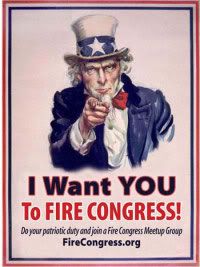Results 1 to 3 of 3
Thread Information
Users Browsing this Thread
There are currently 1 users browsing this thread. (0 members and 1 guests)
Threaded View
-
02-16-2010, 11:35 AM #1
A "Driver’s License" for Internet Users?
A "Driver’s License" for Internet Users? | Print | E-mail
Written by Steven Yates
Monday, 15 February 2010 22:00
At the recent meeting of the globalist World Economic Forum in Davos, attendee Craig Mundie — chief research and strategy officer for Microsoft — floated the notion that a "driver’s license" should be required for private citizens to access the Internet, no less than what is required to drive an automobile. This would have the effect of putting an end to online anonymity.
Defenders of the idea cite numerous problems of an uncontrolled and uncensored Internet. Some of these range from nuisances like spamming and trolling to cyber-bullying, which is capable of being more than a mere nuisance, to bona fide dangers such as viruses, spying (by corporations or government agencies), identity theft, child pornography, solicitations for prostitution, and organized crime generally.
The blogosphere is buzzing about the idea, with one discussion describing its advocates as control freaks promoting a system more worthy of totalitarian China than the still somewhat-free West.
One defender pressed the claim by arguing from analogy that just as human societies breed lawlessness if they grow without the establishmnet of explicit rules, the Internet has grown from a very small community of users, most of whom knew each other, to a very large community where "anyone can go online and no one has to say who they are." There are plenty of places in the physical world where you cannot go unless you present an ID; likewise, there are already things you cannot do online if you won't supply identification (collect donations for Haiti earthquake relief, for example, which requires soliciting and encryption of sensitive credit card information). As communities grow in size and anonymity, they supposedly require progressively more rules, and the Internet, argues this blogger, is no different.
There are, of course, significant and fairly obvious differences between driving a car and surfing the Web. And a driver's license hardly prevents irresponsible or even malicious driver conduct. Moreover, driver's licenses can be faked. What is it that advocates of a "license" for Internet use really want? Perhaps a better question would be, Why now?
The Internet has become the scene of a wider range of unregulated reportage and discussion than anyone has ever seen before. This includes, obviously, current events and modern history. By the mid- to late-1990s, websites were springing up devoted to bringing audiences news from points of view not endorsed by carefully vetted editorial boards of mainstream media newspapers or television networks. You could research and read about, for example, the influence of secretive organizations such as Skull & Bones and the Council on Foreign Relations; it became harder and harder for Bilderberg Group meetings to hide from at least some public scrutiny.
Today you can read about how the "Climategate" emails have undermined the idea — very important to those in power — that a scientific consensus exists on global warming, justifying the desired global response.
You can find alternative health information on the Web — alternative, that is, to the “scientific medicine�



 LinkBack URL
LinkBack URL About LinkBacks
About LinkBacks






 Reply With Quote
Reply With Quote

DHS says 'privacy' of migrants on terrorist watchlist is greater...
05-17-2024, 09:42 PM in illegal immigration News Stories & Reports